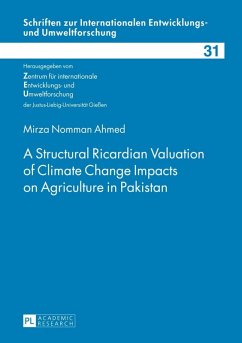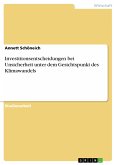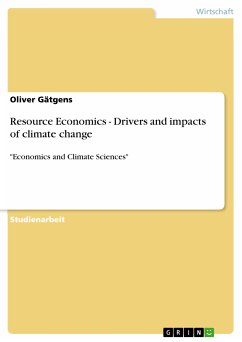This book presents the economic analysis of the impacts of climate change on agriculture in Pakistan. Particular emphasis is laid on the magnitude of implicit adaptations in overall climate impact assessment and the analysis of selected adaptation options. Using a hedonic pricing model and a revealed choice approach, this study identifies the impacts of climate change on agricultural incomes, depicts the spatial patterns and seasonality of the impacts, and models the future adaptation behavior of farmers in the crop sector. A high sensitivity of farming in Pakistan to climate change is confirmed. With a changing climate and income in mind, farmers in Pakistan are more likely to choose rice, vegetables and maize, whereas they move away from wheat, sugarcane, cotton and fruits.
Dieser Download kann aus rechtlichen Gründen nur mit Rechnungsadresse in A, B, BG, CY, CZ, D, DK, EW, E, FIN, F, GR, HR, H, IRL, I, LT, L, LR, M, NL, PL, P, R, S, SLO, SK ausgeliefert werden.



